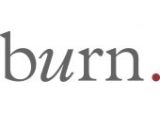
According to a study by the Greek Center for Social Sciences, prostitution has increased by 150% in two years. The economic crisis that has afflicted Greece for years has had very profound, sometimes intimate, effects. In the center of Athens, around Omonia Square, dozens of prostitutes, often drug addicts; sell their bodies for a few Euros in crooked hotels.
In the side streets, people use heroin out in the open. Porn movie theaters offer dark rooms where young boys offer sex to the elderly. In a park nearby, young refugees, often minors, escaped from hell, end up selling themselves for 3 or 4€. In some streets, there are many illegal brothels. As soon as you open the door, girls are offered as if they were on the market. Everyone knows, but the institutions are not in a position to intervene.
There is no money for assistance, help or protection, and this is the true price of the crisis, which affects the weaker population segments. Once a family’s economic support has failed, even young, well-off students, have decided to prostitute themselves. Behind all of this, there is exploitation, trafficking, organized crime, or, for the lucky ones, only struggle for survival.

Marilena, 50. We meet in one of the many hotels around Omonia Square. Marilena has been a prostitute since she was 20. She wanted to be an archaeologist.

Maria, 48. He started as a masseuse, but due to drugs he started to work at Omonia. She lives with her mother, her son and her two brothers. Before the crisis she earned 200€ a day, now she earns 50€, and has spent all of them on heroin.

M. 25. He worked in a hotel as a dishwasher. When the hotel closed, he ended up prostituting himself in Omonia Square. He tells me he’s not gay, and he has a pregnant wife, he does it for the money.

Joanna, 36 and two kids. She works in one of the streets around Omonia Square. Former model and singer. With the crisis she chargers 15€ for sex, half of what he charged before. She spends most of her money on drugs.

Joanna, 36 and two kids. She works in one of the streets around Omonia Square. Former model and singer. With the crisis she chargers 15€ for sex, half of what he charged before. She spends most of her money on drugs.

M. 25. He worked in a hotel as a dishwasher. When the hotel closed, he ended up prostituting himself in Omonia Square. He tells me he’s not gay, and he has a pregnant wife, he does it for the money.

The area around Omonia.

Inside one of the many hotels around Omonia, where the only business is prostitution.

Louka, 24. Psychology student. He tells me that he does not just for money but also for his experience. If he asked for 100€ before the crisis, he now asks for 50, money that still allows him to live in one of the wealthiest areas in Athens.

Pedion tou Areos park. In a thick interweave of wooded trails, among the trees and the bushes, you find very young Afgani, Pakistani and Syrian prostitutes. At night, lonely men walk in search of easy prey for little money.

Brothels are somehow legal in Greece. Only 10 brothels comply with the restrictive laws regulating the opening. Each structure must be at least 200 meters from schools, churches and pubic buildings. In certain areas of the city there are dozens of illegal brothels that do nothing to hide.

The area of Omonia, in the city center.

Cases of AIDS contagion are steadily increasing, due to the economic crisis. The government has decided to increase the VAT on condoms from 13 to 24%. The police also use evidence in prostitution allegations, prophylactic possession, discouraging their use and increasing the risk of contagion.

Louka, 24. Psychology student. He tells me that he does not just for money but also for his experience. If he asked for 100€ before the crisis, he now asks for 50, money that still allows him to live in one of the wealthiest areas in Athens.
Bio
Gianmarco Maraviglia, born in 1974, works on long-term projects such as the story of his daughter Olivia, entitled Olivia’s Roots; whose grandparents were born in four different countries. Maraviglia documented these countries in order to tell the story of a little girl who embodies traditions, language, and culture. Looking for an alternative perspective, he then told the story of the revolution in Egypt through eyes of the underground movement; skate, parkour, hip hop… a more social and cultural revolution than politics. For several years he has been working on the topic of religion; first with the Global Religion project, which is a documentation of all foreign religions practiced in Italy. Secondly, with the long work EVA, an alternative vision of the sacred places of Christianity. He has been traveling for a year to the Caucasus with his colleague Karl Mancini, to tell the unrecognized countries born of the collapse of the Soviet Empire, with the Blooming Generation project. This work is narrated through the stories of young people born after independence, and their research of national and cultural identity. His work has been published by Newsweek, CNN, Washington Post, Wired, Marie Claire, Corriere della Sera, Die Zeit, Cicero, Mare amongst others. Maraviglia is the founder of the Echo Photojournalism agency and a photojournalism professor at the European Design Institute.
Related Links
Gianmarco Maraviglia

















Quality pictures but I don’t feel informed or moved in any way.
Photography as subject sanitisation
I would love for Gianmarco to respond here. What was happening in your mind during the shooting and the editing to wind up with this set? Harry and Imants: I’m sure the Gianmarco’s intent isn’t to bore or wash over what’s going on.
Burn is at it’s best when there’s a dialogue about what worked and what didn’t that takes both audience and photographer higher.